Can You Get Married in Your Backyard in the UK? A Friendly Guide to Garden Weddings
Thinking about tying the knot in the comfort of your own backyard? The idea of having a backyard wedding is magical, providing a unique and personal touch to your special day. With recent changes in the law, this dream might be closer to reality in the UK than ever before. Outdoor weddings at licensed venues are now permanently legal in England and Wales, opening up exciting possibilities for those considering a ceremony in their garden.
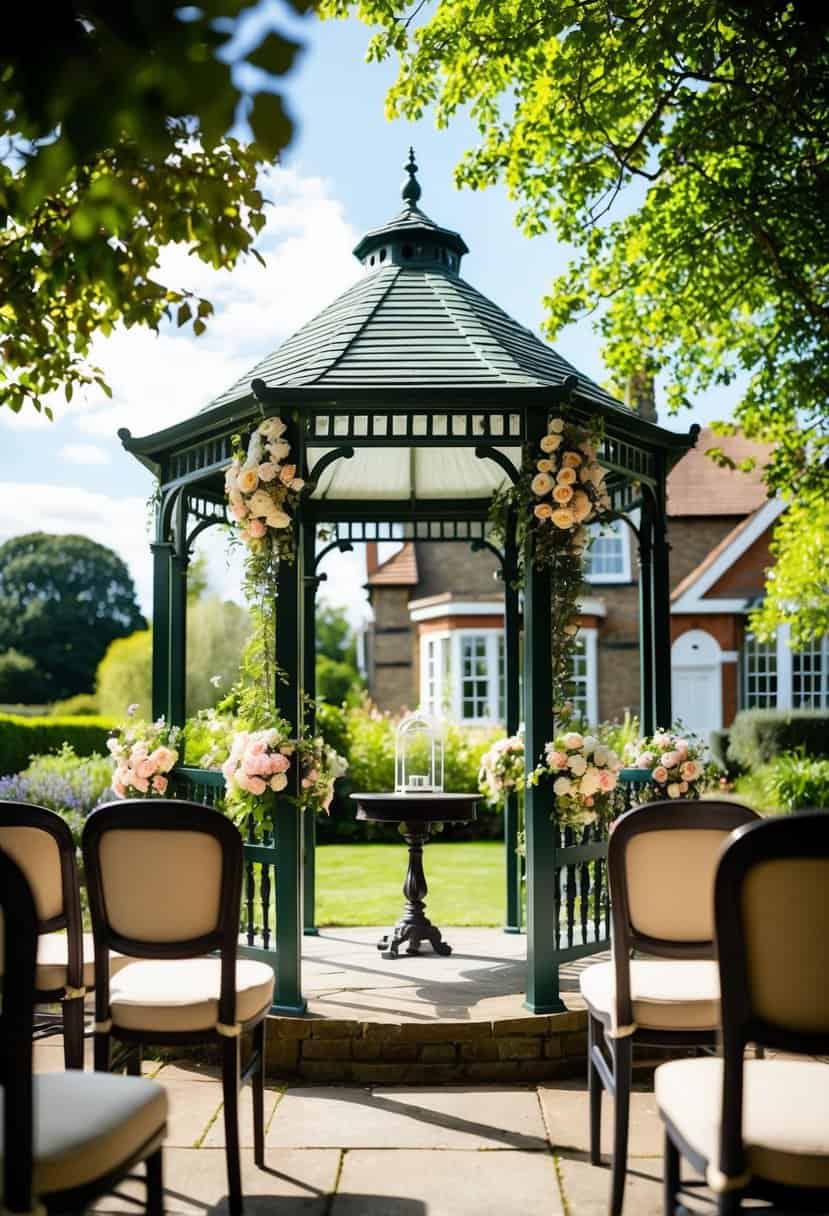
Choosing to have a backyard wedding offers unparalleled choice and flexibility. You can create a setting that reflects your personal style, whether it’s a casual gathering with close friends or a more lavish event. The familiar surroundings of your home can make your day even more memorable and meaningful.
Keep in mind, however, that while you can host the reception in your backyard, there are specific legal requirements for the actual ceremony. Checking local regulations and working with a licensed celebrant will ensure that you can combine legality with your vision of a perfect backyard celebration.
Legal Requirements for Marrying in Your Backyard in the UK

Planning to tie the knot in your own backyard in the UK? It’s crucial to know that certain legal requirements must be met. You’ll need to work with local authorities and registrars, and your backyard must be an approved venue for the ceremony to be legally recognized in countries like England and Wales.
Understanding Civil Ceremonies
In England and Wales, a civil wedding ceremony must be conducted at an approved premises or licensed venue. This means your backyard needs to be certified as such. Civil ceremonies are non-religious, and they are carried out by a registrar. The wedding must also be legally binding, which requires following specific legal protocols outlined by the Marriage Act 1836.
To have your backyard approved, you’ll need to contact your local council or registry office. They will guide you on the process and any local requirements. The venue needs to be a permanent structure or a designated area where ceremonies are allowed.
Role of the Registrar and Approved Premises
The registrar plays a key role in making your marriage legally recognized. They will oversee the ceremony and handle all necessary paperwork. You need to give notice of your marriage to your local registry office at least 28 days before the ceremony. The registrar ensures that your backyard is an approved premises for civil weddings.
Approved premises need to meet specific conditions to host legally binding weddings. If your backyard meets these conditions, it can be licensed similarly to other venues. You should plan early to ensure everything is in place for your big day.
Planning Your Outdoor Wedding
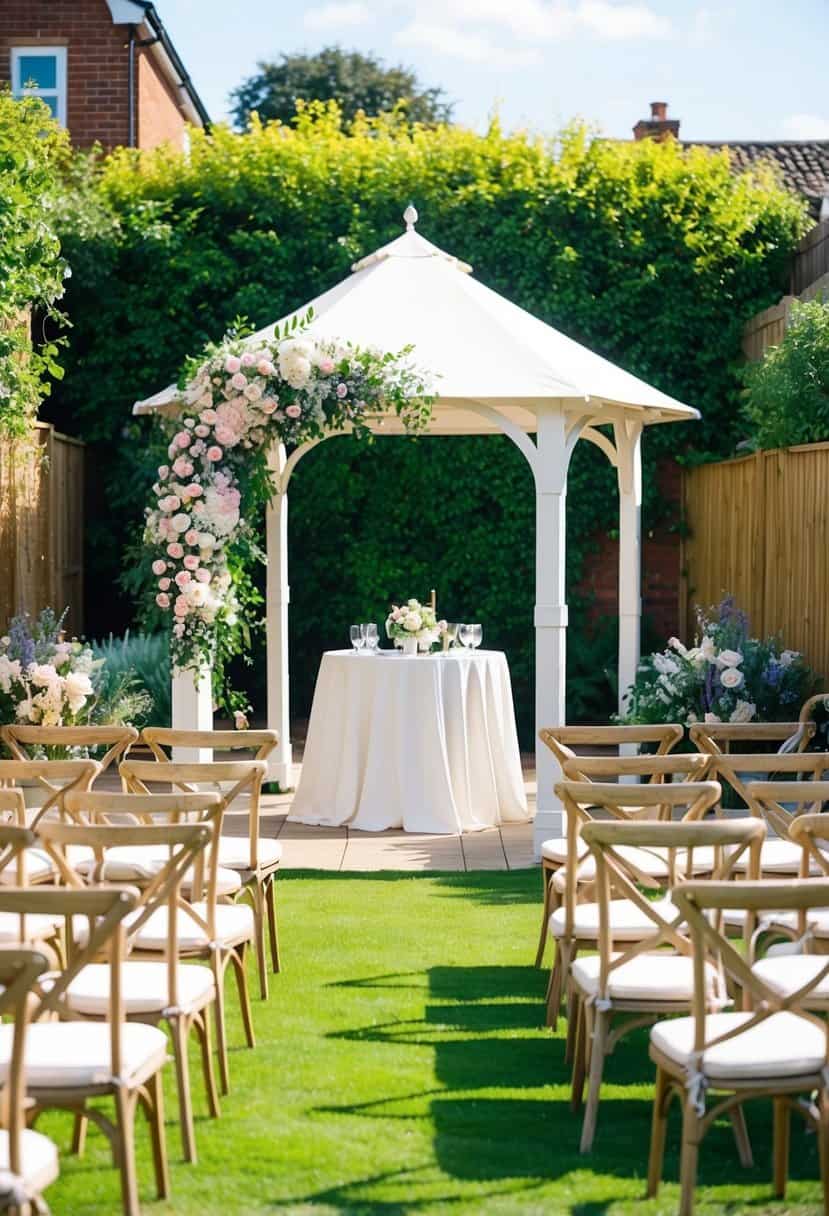
When planning an outdoor wedding in the UK, choosing the right space and working with a celebrant are essential steps. You’ll need to consider venue suitability and legal requirements to ensure a memorable day.
Selecting the Right Outdoor Space
Choosing the right outdoor space is crucial for your wedding day. Not all gardens or outdoor areas are suitable or licensed for official ceremonies. Ensure the location aligns with your vision and has the needed facilities like seating and restrooms.
If you’re using a public area, check with local authorities about permits. For a garden wedding at your own home, ensure the space can comfortably accommodate all guests and staff. Consider factors like weather; renting a marquee or tent can provide essential cover and add elegance to your setting.
Working with a Celebrant
A celebrant can personalize your ceremony and manage its structure, especially if your chosen space isn’t a licensed venue. Celebrant-led ceremonies offer flexibility, allowing you to hold your wedding in unique locations, such as beaches or historic gardens.
Choose a celebrant who understands your style and vision, and work closely with them to plan a meaningful ceremony. While the legal registration might need to occur separately, a celebrant can craft a memorable day in a setting that truly reflects you as a couple. For more details on how celebrant-led weddings work, check local laws and guidelines.
Types of Ceremonies and Partnerships
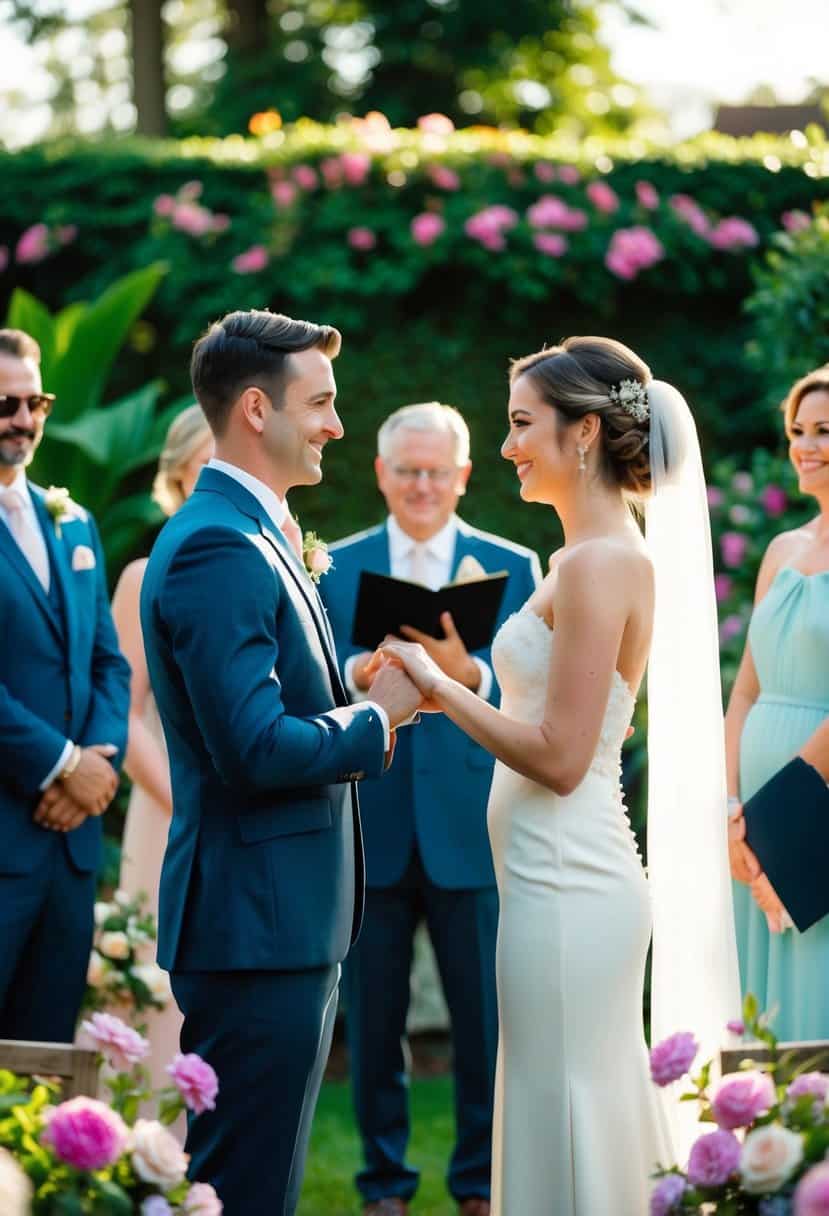
In the UK, you can choose different types of ceremonies and partnerships to suit your preferences and beliefs. There are options for civil and religious ceremonies, each with its own requirements and levels of flexibility.
Civil Partnerships vs Civil Marriages
In the UK, both civil partnerships and civil marriages are legal ways for couples to make a commitment to each other. While both share legal rights and responsibilities, there are some differences.
Civil marriages are typically held in a registry office or approved venue and can include vows and readings, but they cannot be religious in nature. Civil partnerships, on the other hand, offer a more straightforward, non-ceremonial way to formalize your relationship without any vows or readings.
Civil partnerships have often been a choice for same-sex couples, but since 2019, they are available to heterosexual couples too. Both options grant similar legal and financial rights, such as inheritance, tax benefits, and parental responsibilities. It’s important to think about which option suits your relationship and personal preferences.
Understanding Religious Marriages
Religious marriages in the UK are conducted according to the rites of your faith. These ceremonies can take place in places of worship like churches, synagogues, mosques, and temples. Each religious group has its own traditions and requirements to follow.
For example, Quaker weddings are uniquely simple, often held in silence until attendees feel inspired to speak. While religious premises host these marriages, they must also comply with civil requirements to ensure the marriage is legally recognized.
It’s wise to consult with your religious leader to learn about both the spiritual and legal procedures you need to fulfill.
Restrictions and Flexibility in Various Ceremonies
Different types of ceremonies and partnerships come with their own set of rules and flexibility. For civil ceremonies, you have some freedoms like writing your vows, as long as you don’t include religious content. These can be held at licensed venues, your backyard may be an option after confirming the legality with local authorities.
Religious marriages offer more flexibility in terms of content and venue, especially if they align with your faith community’s practices. Always check what restrictions apply to your ceremony choice in your local area to avoid any legal hiccups. Confirming details with registrars or religious leaders can help ensure everything runs smoothly.
Local Regulations and Considerations
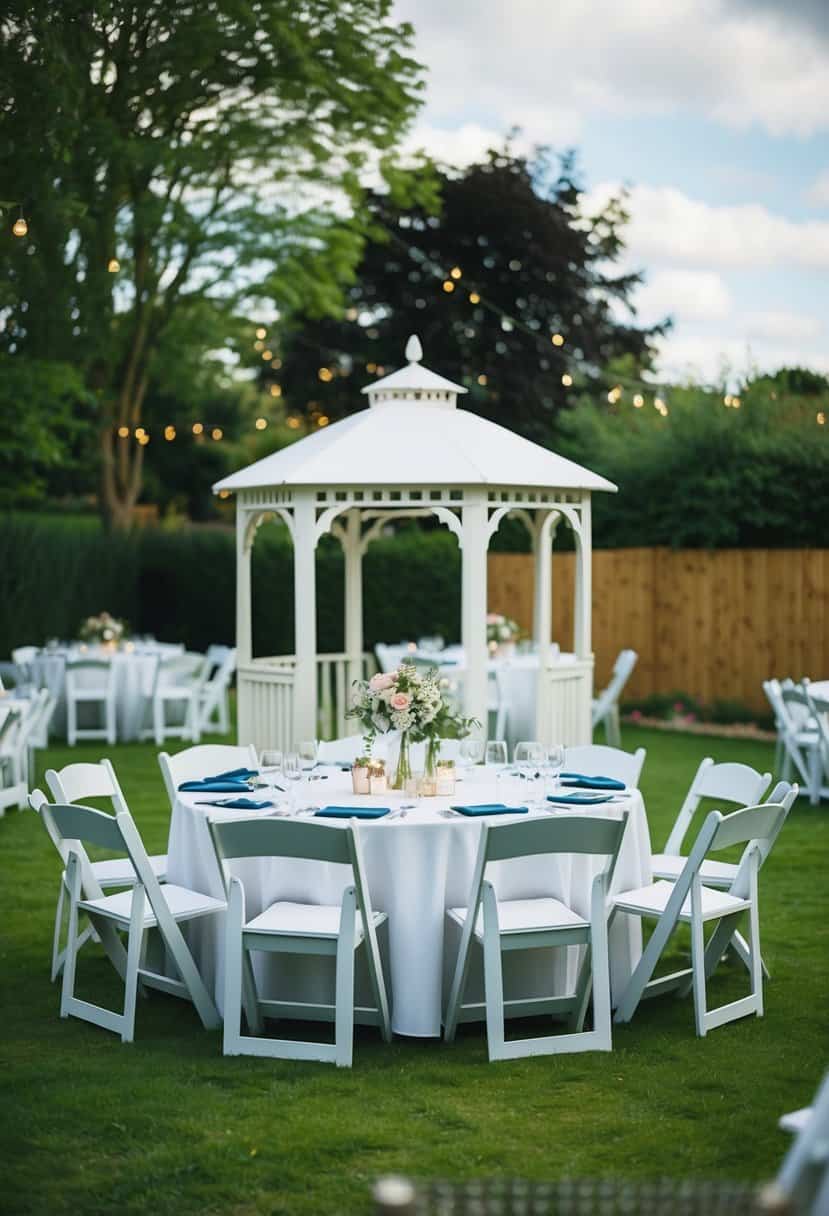
When planning a backyard wedding in the UK, it’s important to be aware of local regulations and outdoor wedding laws. This helps to ensure your ceremony is both legal and smooth.
Engaging with the Local Authority
One of the first steps to consider is engaging with your Local Authority. They can provide crucial information about permits, noise regulations, and other local requirements. It’s a good idea to contact them early in the planning process. This ensures you know what rules apply to your event.
You may need to submit an application if you’re planning to have amplified music or if your celebration goes on past a certain time. Also, consider discussing parking availability with them. This way, you can ensure there’s ample space for your guests without disturbing neighbors.
Some areas might have specifics related to tents or other temporary structures you plan to use. Being proactive and having open communication with your Local Authority can help prevent last-minute surprises.
Navigating Outdoor Wedding Laws
The UK has specific outdoor wedding laws. Post-2022 changes have made it easier to hold ceremonies outside, but knowing the details is key.
If you want to have your wedding ceremony in your own garden, research if the venue is approved for legal ceremonies or if you need additional authorizations. Some information can be found at outdoor ceremony laws.
A Public Consultation in 2021 looked into the practical impacts of these policies. It’s important to ensure the venue can legally host outdoor ceremonies. This can mean checking if the venue is licensed under the new law amendments. Understanding these changes helps avoid complications on your special day.
The Impact of Location on Your Wedding Day
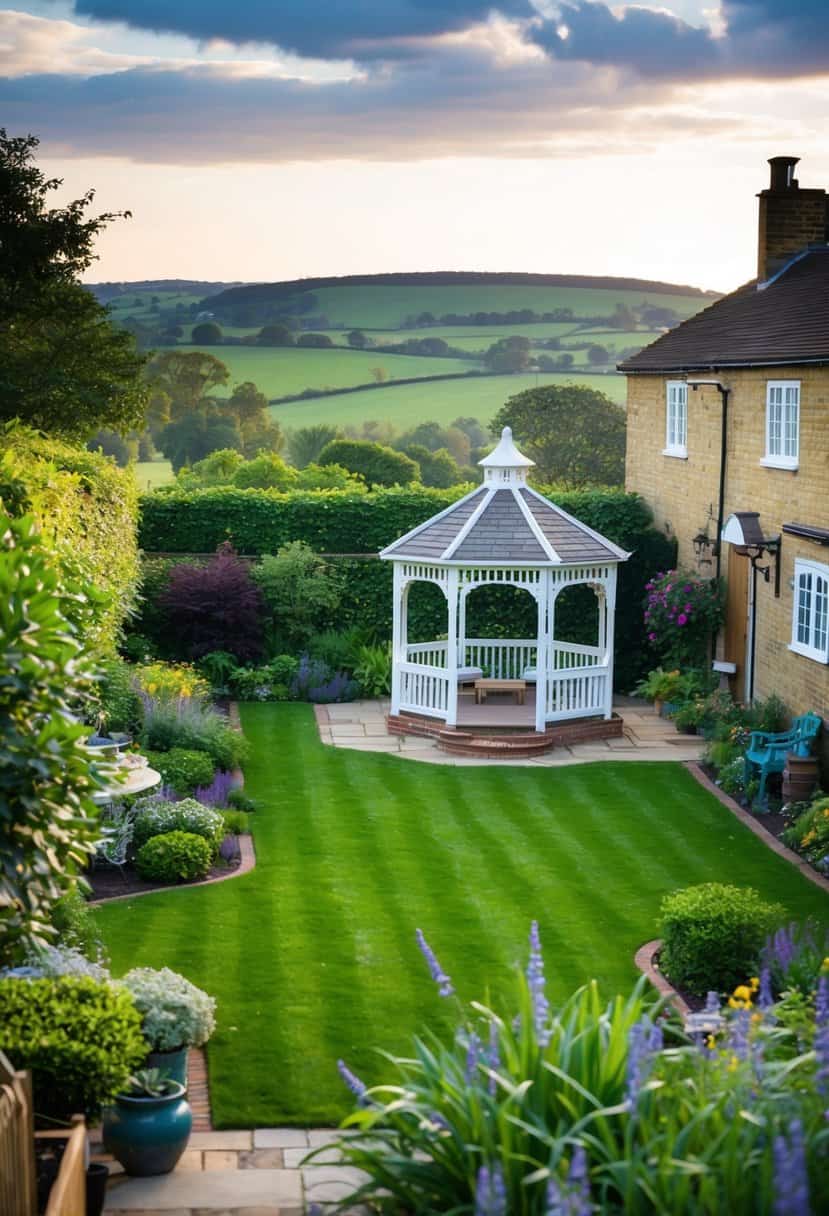
Getting married in your backyard can offer a unique and personal experience, but the location plays a crucial role. It influences everything from the legal requirements to the atmosphere of your wedding ceremony.
Comparing England and Wales
In England and Wales, certain rules apply to outdoor weddings. In both countries, a registered location is a must for your wedding. This means you can hold a ceremony in your backyard, but the legal part needs to happen somewhere with a license.
Choice becomes a big part of planning. If you’re dreaming of an outdoor wedding under the open sky, you must consider these legal aspects. You might decide to have two ceremonies: one for the legal signing and one for your guests to enjoy in your garden.
Consider the weather too. In England and Wales, it’s unpredictable, even in summer. Smart choices like a backup plan or tent rentals are important to keep everyone comfortable. Planning these details ensures your wedding goes smoothly, no matter where in the UK you decide to tie the knot.


